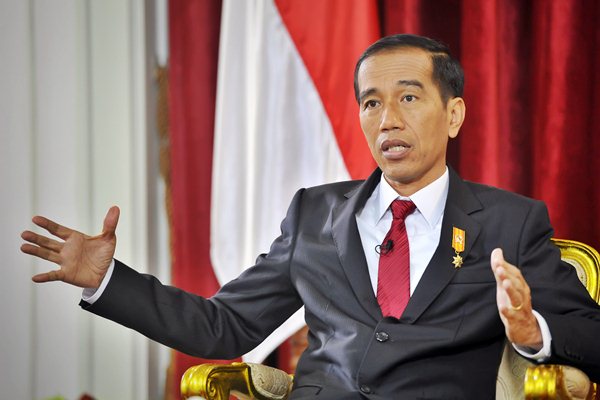Social And Economic Stimulus Protection Against The Impact Of COVID-19 In Indonesia
The spread of the COVID-19 pandemic has not only had an impact on health issues but also humanitarian issues.
In turn, there is an impact on the social, economic, and financial aspects of our country. Because the situation comes with an urgent need, the government has decided to issue a Government Regulation in lieu of law or PERPPU.
After speaking with the Governor of the Bank of Indonesia, Financial Services Authority/OJK Commissioner Chairperson, and Indonesia Deposit Insurance Corporation/LPS Head, the PERPPU to be issued by the Government contains:
- Extraordinary policies and measures for saving the national economy and financial system stability
- Relaxation of various measures related to the implementation of the 2020 State Budget/APBN
- A strengthening of the authority of various institutions in the financial sector.
Regarding the handling of COVID-19 and the impact on the economy – I (President Jokowi) instruct:
- The total additional expenditure and financing for the 2020 state budget for handling COVID-19 is Rp405.1 trillion.
- Of that figure, Rp75 trillion is for the health sector, Rp110 trillion is for the social safety net, Rp70.1 trillion is for tax incentives and KUR (People’s Business Credit) stimulus, and Rp150 Trillion is allocated to finance the national economic recovery programme, including restructuring credit and guarantees, and financing for MSMEs and other businesses to maintain economic resilience and recovery.
The first priority is preparing a budget to support the health sector, amounting to Rp75trillion, that will be used for:
- Protection of health workers, particularly purchasing PPE
- Purchase of medical equipment as needed, such as test kits, reagents, ventilators, hand sanitisers, and others kit according to standards set by the Ministry of Health
- Upgrade 132 referral hospitals for handling COVID-19 patients, including the athlete’s village
- Doctor incentives, for specialists Rp15 million per month, for general practitioners Rp10 million per month, for nurses Rp7.5 million per month, and other health workers Rp5 million per month
- The medical death benefit of Rp300 million
- Support of medical personnel, as well
- Other health treatments.
The second priority is preparing a budget for social protection:
- PKH (Program Keluarga Harapan) is the first conditional cash transfer programme in Indonesia, offering 10 million KPM (beneficiary family), paid monthly starting in April (so that yearly assistance rises 25%
- Groceries cards will be increased from 15.2 million to 20 million recipients, with benefits rising from Rp150,000 to Rp200,000 for 9 months, an increase of 33%
- The Workers’ Card will be raised from 10 trillion to 20 trillion to cover around 5.6 million informal workers, micro, and small businesses. Beneficiaries will receive post-training incentives of Rp600,000, with training costs of Rp1 million.
- 3 months electricity fee waiver for 24 million 450VA electricity customers, and 50% discount for 7 million subsidized 900VA customers.
- Logistics support for basic needs and basic food of Rp25 trillion.
- The government will provide two stimuli of Rp1.5 trillion for low-income people (MBR) to subsidised housing loans by providing interest difference subsidies for 10 years. If the interest is above 5%, then the interest difference will be paid by the government. The government also provides a subsidy for down payment assistance for those taking subsidised home loans.
The third priority is preparing the budget for economic stimulus for MSMEs and the businesses will be prioritised for:
- Income tax 21 workers in the manufacturing sector with a maximum income of Rp200 million a year are borne by the government 100%
- For the exemption of import VAT (Value Added Tax) for taxpayers, then import-export destinations, especially for small and medium industries in 19 specific sectors.
- Reduction of income tax 25% for certain sectors of “Ease of Importation of Export Purposes (KITE)” and small and medium enterprises of KITE taxpayers
- VAT refunds are accelerated for 19 specific sectors to maintain business liquidity
- Postponement of principal and interest payments for all KUR schemes that are affected by COVID-19 for 6 months
- 3% reduction in corporate income tax rates to (from 25% to 22%) for 2020 and 2021 and to 20% starting in 2022.
- Other support from budget financing to support economic recovery.
In addition, non-fiscal policies such as simplifying export Lartas (Restricted Ban), simplifying import Lartas, accelerating the export-import process services through the National Logistic Ecosystem will be implemented.
We also optimise the mix of monetary and financial sector policies with Bank of Indonesia and OJK to provide support to the economy and maintain stability.
- Bank of Indonesia has issued a monetary stimulus policy through a policy of triple intervention intensity, then lowering the ratio of mandatory statutory reserves to foreign exchange of conventional commercial banks, expanding underlying transactions for foreign investors, and using global and domestic custodian banks for investment activities.
- Likewise, the OJK provides the stimulus for debtors through relief and/or postponement of credit or leasing payments of up to Rp10 billion, including for MSMEs and informal workers for a maximum of 1 year, as well as providing relief and/or postponement of credit or leasing payments without ceiling restrictions based on prompt payment and agreed with the bank or leasing agency.
The government continues to make efforts to maintain prudent fiscal management through refocusing and reallocation of expenditure for handling COVID-19, saving spending (ministries/agencies and transfer to regional and village funds/TKDD) that is not prioritised according to changing conditions in 2020 – so that savings are made of Rp190 trillion and includes the reallocation of reserves of Rp54.6 trillion.
PERPPU also anticipates the possibility of a deficit which is expected to reach 5.07%.
- Because it is necessary to relax the state budget deficit policy above 3%
- But the relaxation of deficits is only for 3 years (2020, 2021 and 2022)
- After that return to fiscal discipline, a maximum of 3% deficit starting in 2023.
Finally, I (President Jokowi) will immediately sign this PERPPU so that it can be implemented. And in the shortest possible time, will be submitted to the DPR for approval to become a law.




